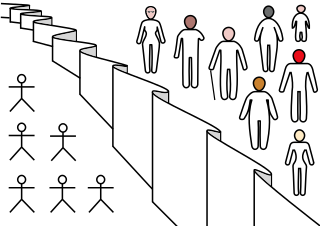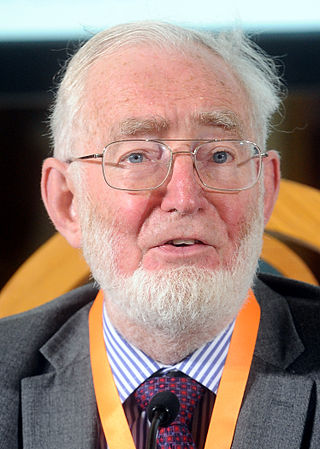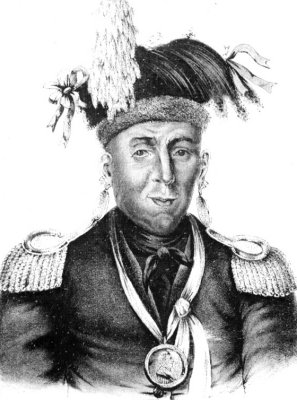To be born again, or to experience the new birth, is a phrase, particularly in evangelicalism, that refers to a "spiritual rebirth", or a regeneration of the human spirit. In contrast to one's physical birth, being "born again" is distinctly and separately caused by the operation of the Holy Spirit, and it is not caused by baptism in water. It is a core doctrine of the denominations of the Anabaptist, Moravian, Methodist, Baptist, Plymouth Brethren and Pentecostal Churches along with all other evangelical Christian denominations. All of these Churches strongly believe Jesus's words in the Gospels: "You must be born again before you can see, or enter, the Kingdom of Heaven". Their doctrines also mandate that to be both "born again" and "saved", one must have a personal and intimate relationship with Jesus Christ.
Income is the consumption and saving opportunity gained by an entity within a specified timeframe, which is generally expressed in monetary terms. Income is difficult to define conceptually and the definition may be different across fields. For example, a person's income in an economic sense may be different from their income as defined by law.

Inheritance is the practice of receiving private property, titles, debts, entitlements, privileges, rights, and obligations upon the death of an individual. The rules of inheritance differ among societies and have changed over time. Officially bequeathing private property and/or debts can be performed by a testator via will, as attested by a notary or by other lawful means.
Meritocracy is the notion of a political system in which economic goods or political power are vested in individual people based on ability and talent, rather than wealth or social class. Advancement in such a system is based on performance, as measured through examination or demonstrated achievement. Although the concept of meritocracy has existed for centuries, the first known use of the term was by sociologist Alan Fox in the journal Socialist Commentary in 1956. It was then popularized by sociologist Michael Dunlop Young, who used the term in his dystopian political and satirical book The Rise of the Meritocracy in 1958. Today, the term is often utilised to refer to social systems, in which personal advancement and success are primarily attributed to an individual's capabilities and merits.
An adverb is a word or an expression that generally modifies a verb, adjective, another adverb, determiner, clause, preposition, or sentence. Adverbs typically express manner, place, time, frequency, degree, level of certainty, etc., answering questions such as how, in what way, when, where, to what extent. This is called the adverbial function and may be performed by single words (adverbs) or by multi-word adverbial phrases and adverbial clauses.

The original position (OP), often referred to as the veil of ignorance, is a thought experiment used for reasoning about the principles that should structure a society based on mutual dependence. The phrases original position and veil of ignorance were coined by the American philosopher John Rawls, but the thought experiment itself was developed by William Vickrey and John Harsanyi in earlier writings.
The Takbir is the name for the Arabic phrase Allāhu ʾakbaru.
In linguistics, X-bar theory is a model of phrase-structure grammar and a theory of syntactic category formation that was first proposed by Noam Chomsky in 1970 reformulating the ideas of Zellig Harris (1951), and further developed by Ray Jackendoff, along the lines of the theory of generative grammar put forth in the 1950s by Chomsky. It attempts to capture the structure of phrasal categories with a single uniform structure called the X-bar schema, basing itself on the assumption that any phrase in natural language is an XP that is headed by a given syntactic category X. It played a significant role in resolving issues that phrase structure rules had, representative of which is the proliferation of grammatical rules, which is against the thesis of generative grammar.

A Theory of Justice is a 1971 work of political philosophy and ethics by the philosopher John Rawls (1921–2002) in which the author attempts to provide a moral theory alternative to utilitarianism and that addresses the problem of distributive justice . The theory uses an updated form of Kantian philosophy and a variant form of conventional social contract theory. Rawls's theory of justice is fully a political theory of justice as opposed to other forms of justice discussed in other disciplines and contexts.

Equality of outcome, equality of condition, or equality of results is a political concept which is central to some political ideologies and is used in some political discourse, often in contrast to the term equality of opportunity. It describes a state in which all people have approximately the same material wealth and income, or in which the general economic conditions of everyone's lives are alike.
Equal opportunity is a state of fairness in which individuals are treated similarly, unhampered by artificial barriers, prejudices, or preferences, except when particular distinctions can be explicitly justified. For example, the intent of equal employment opportunity is that the important jobs in an organization should go to the people who are most qualified – persons most likely to perform ably in a given task – and not go to persons for reasons deemed arbitrary or irrelevant, such as circumstances of birth, upbringing, having well-connected relatives or friends, religion, sex, ethnicity, race, caste, or involuntary personal attributes such as disability, age.

The American Dream is the national ethos of the United States, a set of ideals including representative democracy, rights, liberty, and equality, in which freedom is interpreted as the opportunity for individual prosperity and success, as well as upward social mobility for oneself and their children, achieved through hard work in a capitalist society with few barriers.
In English-language punctuation, a serial comma is a comma placed immediately after the penultimate term in a series of three or more terms. For example, a list of three countries might be punctuated as either "France, Italy and Spain" or "France, Italy, and Spain".
In the branch of linguistics known as pragmatics, a presupposition is an implicit assumption about the world or background belief relating to an utterance whose truth is taken for granted in discourse. Examples of presuppositions include:
Moral luck describes circumstances whereby a moral agent is assigned moral blame or praise for an action or its consequences, even if it is clear that said agent did not have full control over either the action or its consequences. This term, introduced by Bernard Williams, has been developed, along with its significance to a coherent moral theory, by Williams and Thomas Nagel in their respective essays on the subject.
Luck egalitarianism is a view about distributive justice espoused by a variety of egalitarian and other political philosophers. According to this view, justice demands that variations in how well-off people are should be wholly determined by the responsible choices people make and not by differences in their unchosen circumstances. This expresses the intuition that it is a bad thing for some people to be worse off than others through no fault of their own.

Sir Anthony Barnes Atkinson was a British economist, Centennial Professor at the London School of Economics, and senior research fellow of Nuffield College, Oxford.

Waubonsie was a leader of the Potawatomi Native American people. His name has been spelled in a variety of ways, including Wabaunsee, Wah-bahn-se, Waubonsee, Waabaanizii in the contemporary Ojibwe language, and Wabanzi in the contemporary Potawatomi language.

The Dark Lady of the Sonnets is a 1910 short comedy by George Bernard Shaw in which William Shakespeare, intending to meet the "Dark Lady", accidentally encounters Queen Elizabeth I and attempts to persuade her to create a national theatre. The play was written as part of a campaign to create a "Shakespeare National Theatre" by 1916.

English adjectives form a large open category of words in English which, semantically, tend to denote properties such as size, colour, mood, quality, age, etc. with such members as other, big, new, good, different, Cuban, sure, important, and right. Adjectives head adjective phrases, and the most typical members function as modifiers in noun phrases. Most adjectives either inflect for grade or combine with more and most to form comparatives and superlatives. They are characteristically modifiable by very. A large number of the most typical members combine with the suffix -ly to form adverbs. Most adjectives function as complements in verb phrases, and some license complements of their own.








